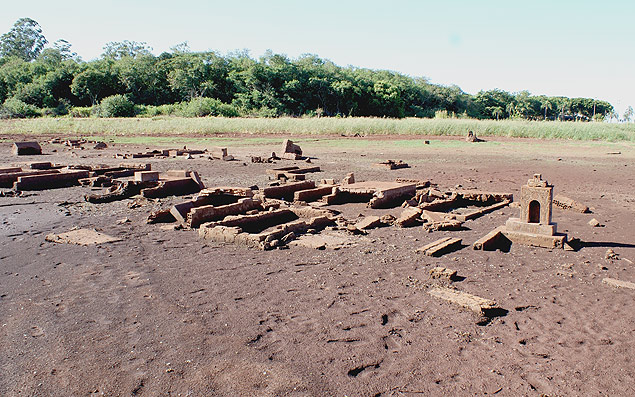Latest Photo Galleries
Brazilian Markets
17h38 Bovespa |
+1,50% | 126.526 |
16h43 Gold |
0,00% | 117 |
17h00 Dollar |
-0,93% | 5,1156 |
16h30 Euro |
+0,49% | 2,65250 |
ADVERTISING
Just Three Months Ahead of the World Cup, Brazil May Be Risking Energy Shortages in 2014
03/13/2014 - 08h37
Advertising
PEDRO SOARES
FROM RIO
JULIA BORBA
FROM BRASILIA
With just three months to go until the World Cup, there are concerns that energy may have to be rationed.
The intense heat of the summer produced an increase in energy consumption during February, while lower than average rainfall has meant that Brazil's hydroelectric plants have been unable to produce their usual levels of energy.
According to the consulting firm PRS; the probability that there may not be enough energy to meet demand went up from 18.5% in January to 23.8%. This figure is considered very high by specialists in the area, with the usual risk being just 3%.
The Ministry of Mines and Energy considers the possibility of rationing "low". In February, the risk of shortage was considered "very low."
This reassessment came on the same day that the National Operator of Electric Energy (ONS, in its Portuguese acronym) revealed that energy consumption in Brazil was up 7.8% this February compared to the same month last year, as a result of the heat across most of the country.
Nonetheless, the minister Edson Lobão sought to allay fears. March will be a better month, he suggested, as higher rainfall is expected. "We are sure that there will be no lack of energy in the country," he said.
The experts, however, are not convinced. For Ricardo Aquino, from the company Trade Energy, the situation is critical, and there is a "fairly significant risk" of shortages. Aquino argues that the government should have launched an energy saving campaign.
He admits that March has been a better month thus far. There has been a small recovery in the level of the reservoirs, it has been cooler, it has rained more, and energy consumption has dropped slightly. Concerns persist however, as water reserves for energy generation remain very low.
On Tuesday, the dams of Brazil's two most important hydroelectric plants (serving the Southeast and Center-West regions, respectively) reached 35.69% of their capacity. The figure for February was just 34.61%, close to that of February 2001, a year of energy rationing.
The flow of rainfall into the rivers that feed the reservoirs went from 38.22% of the average in February to 77% of the average in the first week of March. ONS believes that this trend will continue throughout March, allaying fears of possible shortages.
Herman Chipp, director-general of ONS, echoed Lobão. For Chipp, the current trends indicate that the country will not lack energy.
A comfortable level for the dams would be to operate at 43% capacity by the end of Brazil's rainy season in April, he said. Only then, however, will it be possible to determine whether rationing is necessary.
However, Francisco Navarrete, from Banco Brasil Plural, considers this estimate optimistic, and predicts an increase in the likelihood of shortages.
Mário Veiga, from PRS, says that higher energy consumption has put pressure on "the level of the reservoirs," in February, but he affirms that "no decision will be taken regarding rationing until the end of April." The rainfall in March and April will be crucial to assessing energy supplies for 2014, he says.
Translated by TOM GATEHOUSE
Read the article in the original language
| Gerson Fernandes Cardoso |
 |
| With just three months to go until the World Cup, there are concerns that energy may have to be rationed |



